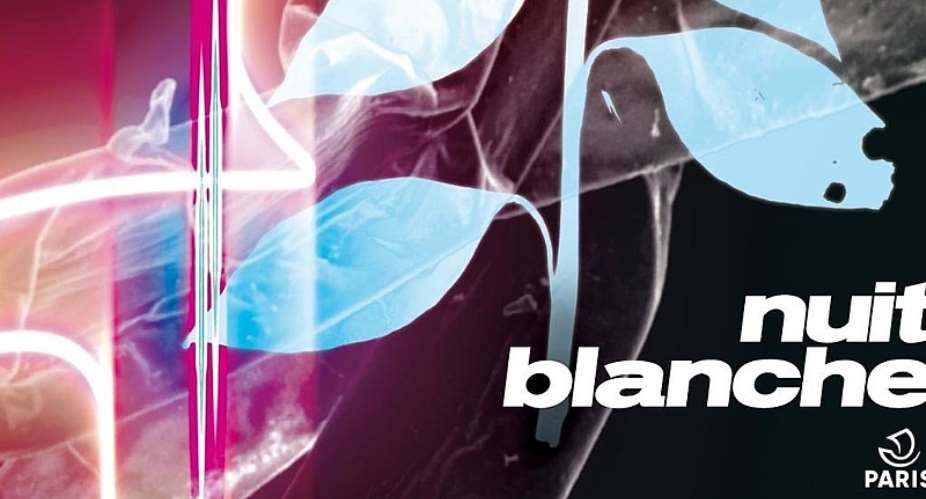The Nuit Blanche 2020 takes place this year against a backdrop of a worsening Covid-19 crisis. Despite skyrocketing infections and increasing health restrictions in the French capital, the Paris town hall is keen to promote the uniqueness of the event – and show how it can spark inspiration and wonder in times of darkness.
The theme of Saturday's Nuit Blanche is “commune présence” or “common ground”, inspired by the words of the French poet and resistance fighter René Char.
“The theme transpired naturally,” explains Jeanne Brun, one of the four artistic directors of the 19th edition of the evening event.
“It sprang from the reawakening after this period and the thirst for sharing a cultural experience,” which Brun says was brutally disrupted during the Covid-19 lockdown.
There are dozens of installations on display in this year's Nuit Blanche, literally "White Night", which takes place indoors and outdoors across Paris's galleries and public spaces, for free.
This year, some of Paris's outer suburbs are also joining in.
"Nuit Blanche is going ahead," the City of Paris said on social media, "notably to support the cultural sector and artists who have suffered badly due to the crisis."
Organisers have put everything in place to accommodate the health restrictions, such as limiting the number of visitors for each exhibit, asking people to reserve online, and only staying open until 2am, as opposed to the usual all-night event.
“The Nuit Blanche is an important symbol for Paris, it shows life goes on,” Brun tells RFI.
“For nearly 20 years, artists have used beauty to surprise us, unite us and make us think. It's an occasion to stop and be entranced.”
In light of the health crisis, Brun said artistic directors were keen to invite artists to shape a dialogue and provide possible answers for a “post-Covid” world.
“We are asking the question: 'Is it possible, and how, to live in this world differently?' That means for example making more room for living creatures, plants and animals. But that means we must also accept to change the way we see the world and how we represent it. That's why the role of artists is so important,” she says.
Brun is also the director of the Musée Zadkine, a post she took up just prior to the Covid-19 lockdown.
The studio-gallery in the 6th district of Paris once belonged to Russian exiled artist Ossip Zadkine in the 1920s, a cosy atmosphere preserved to reflect the artist's relationship to nature, and a “less frenetic” pace of life.
On Saturday evening, the gallery will host French artist and sculptor Laurent Grasso, invited to exhibit a series of sculptures of called Panoptes (he who sees all), which places a figure of a child, at the heart of the installation.
“At the musée Zadkine, I wanted to show how a child is faced with an obscure, troubled world, which is more and more difficult to understand,” Grasso tells RFI, saying he took inspiration from his son to make the sculptures.
“Children are the first victims of this situation, the changes they face are brutal.”
The eye of Panoptes is featured in several of the works, a recurring motive.
"In this installation, I've included my film OttO, shot in sacred aboriginal sites, looking at their ritual of walkabout, whereby young boys are sent off by themselves into the desert, to discover the signs of the ancestors in the landscape."
"Panoptes invites us to reveal the vanity of our desire to control everything, and the necessity to change the way we see the world," concurs Brun.
"Allowing the Nuit Blanche to go ahead for artists is a sign of support which is very valuable," says Grasso, stressing that the Covid period was extremely difficult for artists, deprived of contact with the public, gallery spaces closed and not being able to travel to show their works.
"Artists take risks all the time, and their works have a function. It's important that the public understand how we work, and the difficulties we face."
An invitation to stop, look and listen. To observe the world through the eyes of a child, questioning one's surroundings. Hopefully, with a degree of wonder and surprise – the key words of La Nuit Blanche.
In addition to Nuit Blanche, Saturday 3 October, Grasso's works can also been seen during gallery opening hours until 18 October.





 Minority demands reversal of dialysis fee hike
Minority demands reversal of dialysis fee hike
 Uncontrollable tears as late John Kumah goes home today
Uncontrollable tears as late John Kumah goes home today
 May 18: Cedi sells at GHS14.67 to $1, GHS13.80 on BoG interbank
May 18: Cedi sells at GHS14.67 to $1, GHS13.80 on BoG interbank
 Corruption and arrogance of power have been a major obstruction of Ghana’s progr...
Corruption and arrogance of power have been a major obstruction of Ghana’s progr...
 National Peace Council and Council of State should be abolished — Omane Boamah
National Peace Council and Council of State should be abolished — Omane Boamah
 NPC is a bunch of sycophants who have sold their conscience for cheap broth — Sa...
NPC is a bunch of sycophants who have sold their conscience for cheap broth — Sa...
 May 18: Rainstorm with strong winds expected in southern Ghana — GMet
May 18: Rainstorm with strong winds expected in southern Ghana — GMet
 No constituency left without representation in Parliament — Afenyo Markin
No constituency left without representation in Parliament — Afenyo Markin
 Parliament approves $150million for Accra flood-proofing project
Parliament approves $150million for Accra flood-proofing project
 One-sided Parliament approves ministerial nominees as minority walks out
One-sided Parliament approves ministerial nominees as minority walks out
